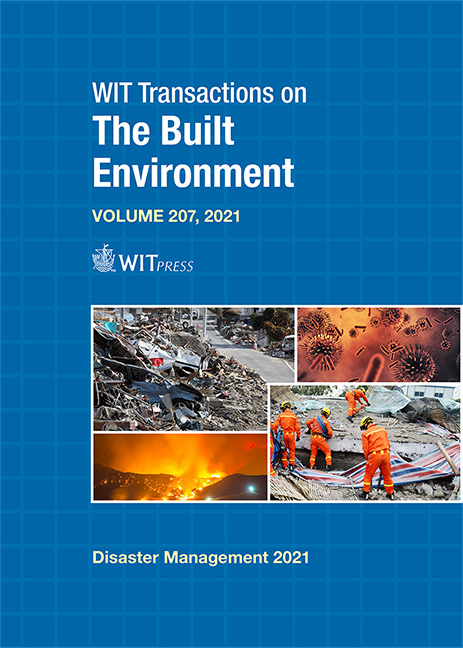SOCIAL CRISIS, PROTESTS AND EFFECTS ON PUBLIC EMERGENCY SERVICES: ECONOMETRIC ANALYSIS OF THE CHILEAN SOCIAL OUTBREAK
Price
Free (open access)
Transaction
Volume
207
Pages
8
Page Range
101 - 108
Published
2022
Paper DOI
10.2495/DMAN210081
Copyright
Author(s)
VALERIA SCAPINI, CINTHYA VERGARA, JASMINA CONTRERAS
Abstract
Chile is known for being one of the richest and most stable countries in Latin America, however it is also the most unequal country in the Organization for Economic Cooperation and Development (OECD) with an income gap that is 65% higher than the OECD average. This situation has generated, for more than a decade, protests to improve living conditions. Citizens, seeing no response from the authorities and faced with a 30-peso hike in the public transport rate in October 2019, went out to protest with greater intensity, generating a large-scale social unrest, producing a series of demonstrations throughout the country where there were violent clashes with the police that ended with the application of toxic gases and riot guns, as measures of repression. The purpose of this work is to determine the impact that the demonstrations had on the number of admission to emergency care in public health centres, through a difference-in-differences analysis where two municipalities are compared, one that was exposed to demonstrations and disorders daily, while the other was not. The results are statistically significant and indicate that there was a 4% increase in the number of emergency care visits, and a 7% increase in the number of care for respiratory symptoms in health centres located in the municipality that was exposed to manifestations and public disorder. Finally, the results can be useful to dialogue and discuss “the protocols of police action in Chile” and take into account the health-related effects on citizens and their impact on other public services.
Keywords
socio-economic crisis, manmade disasters, social outbreak, citizen protests, public health management




